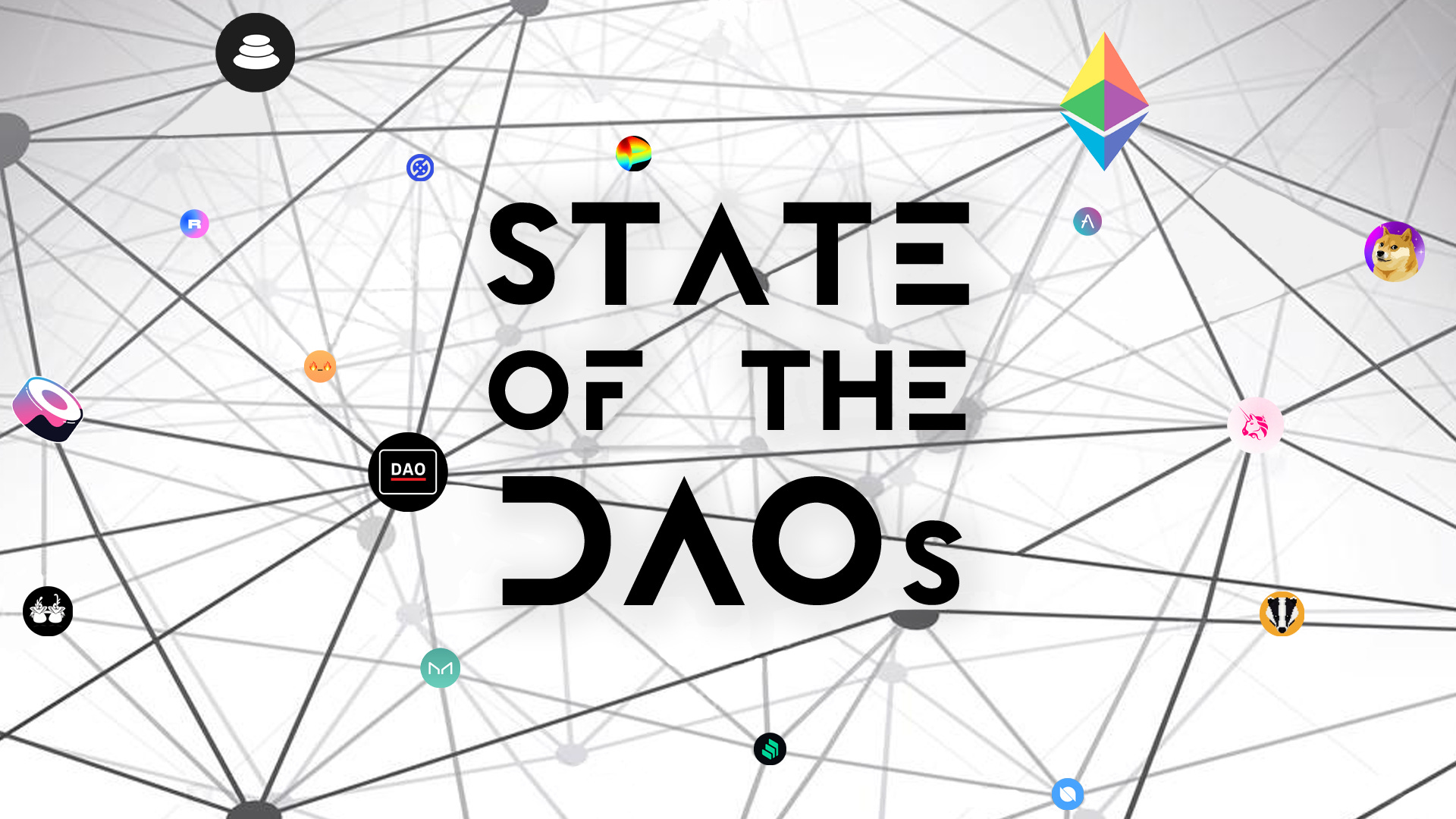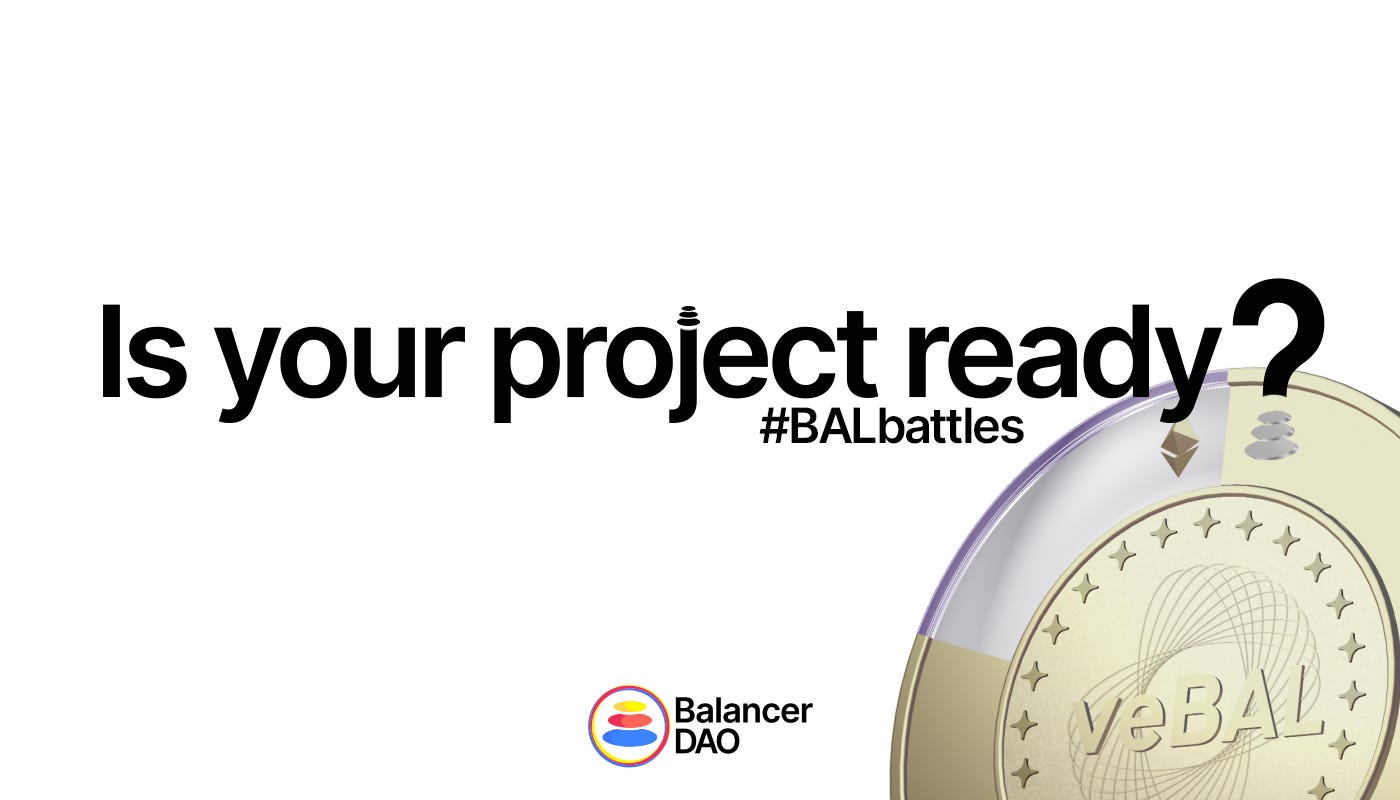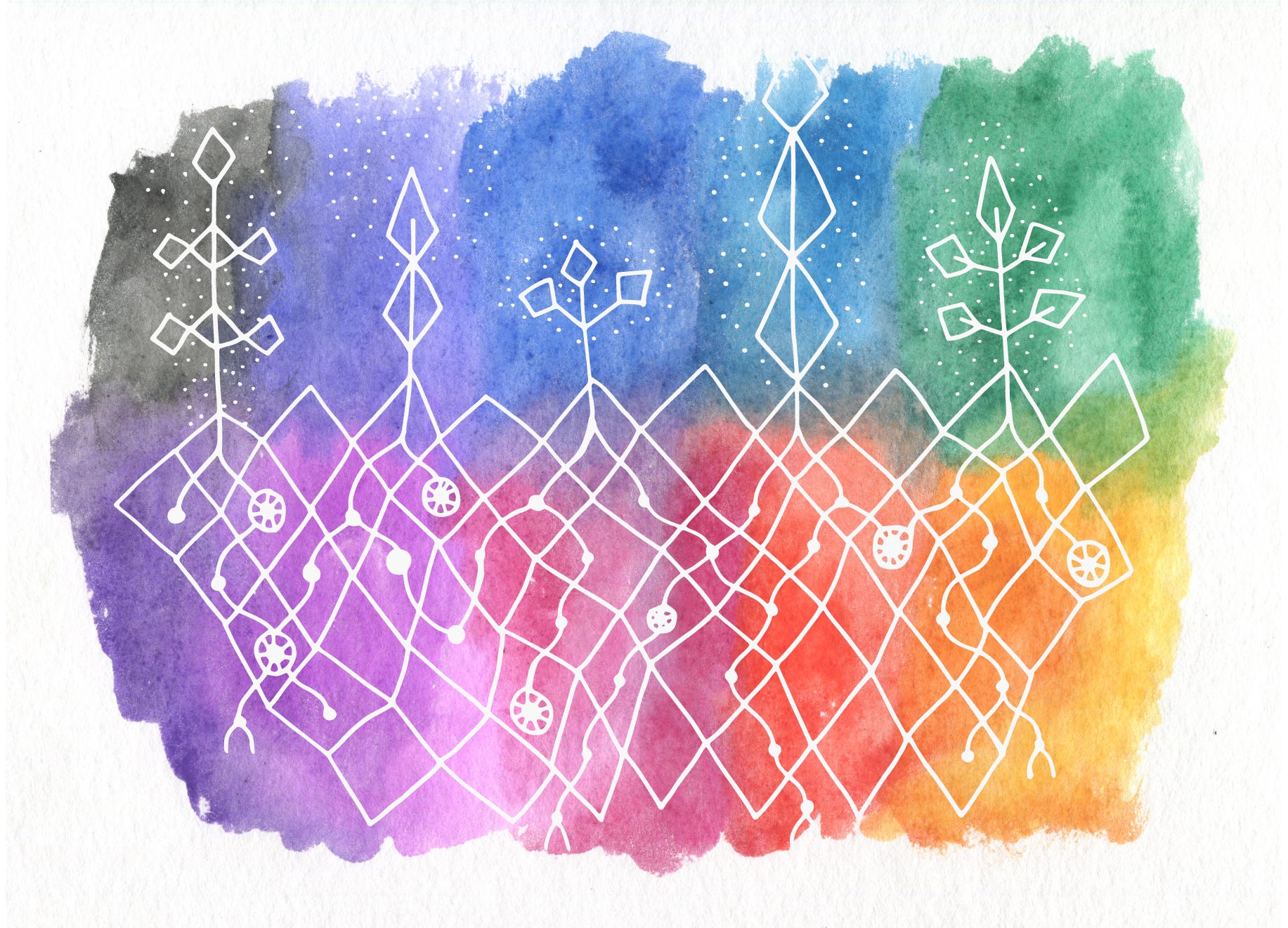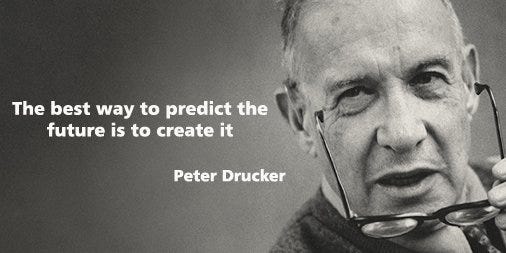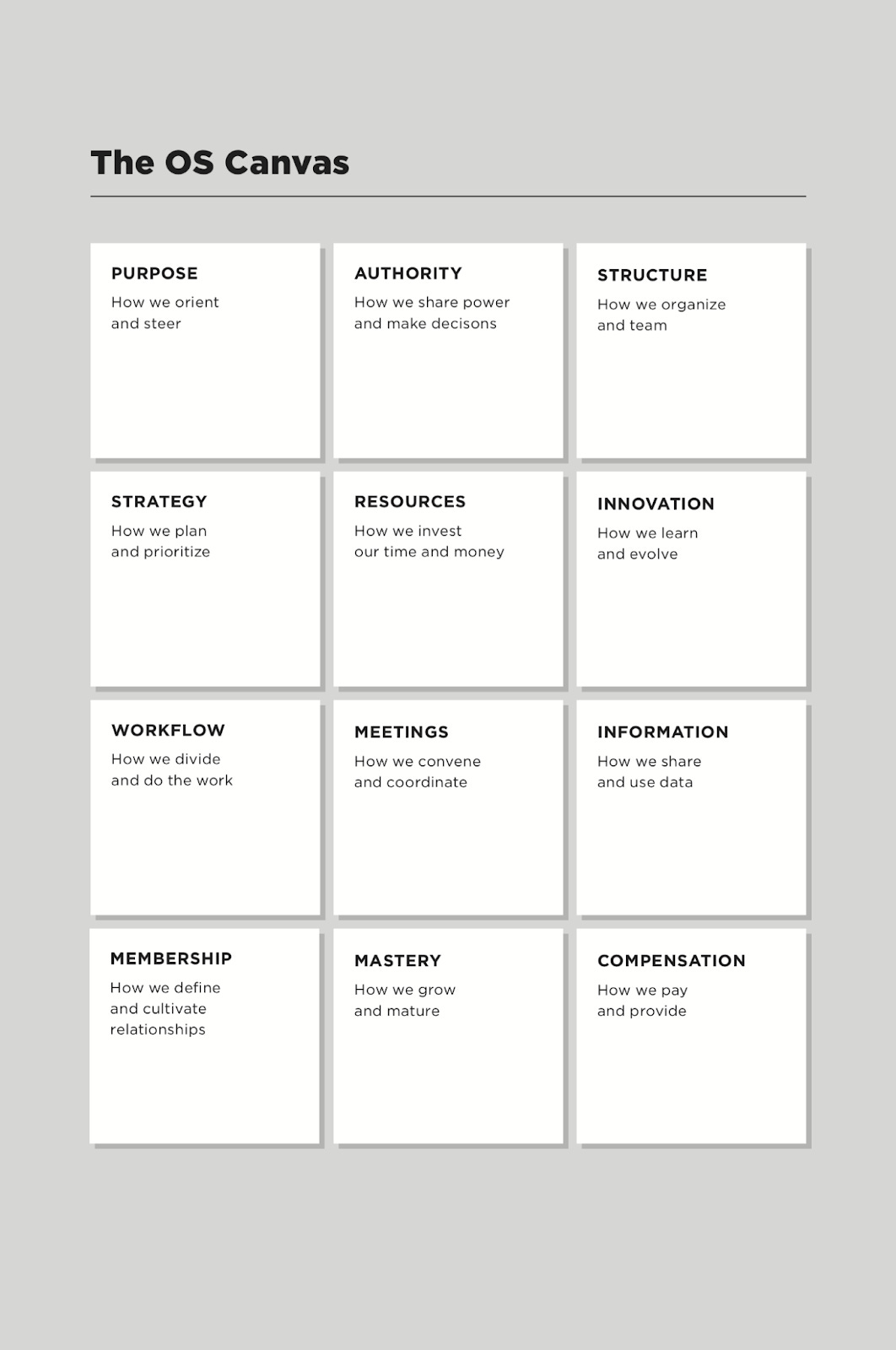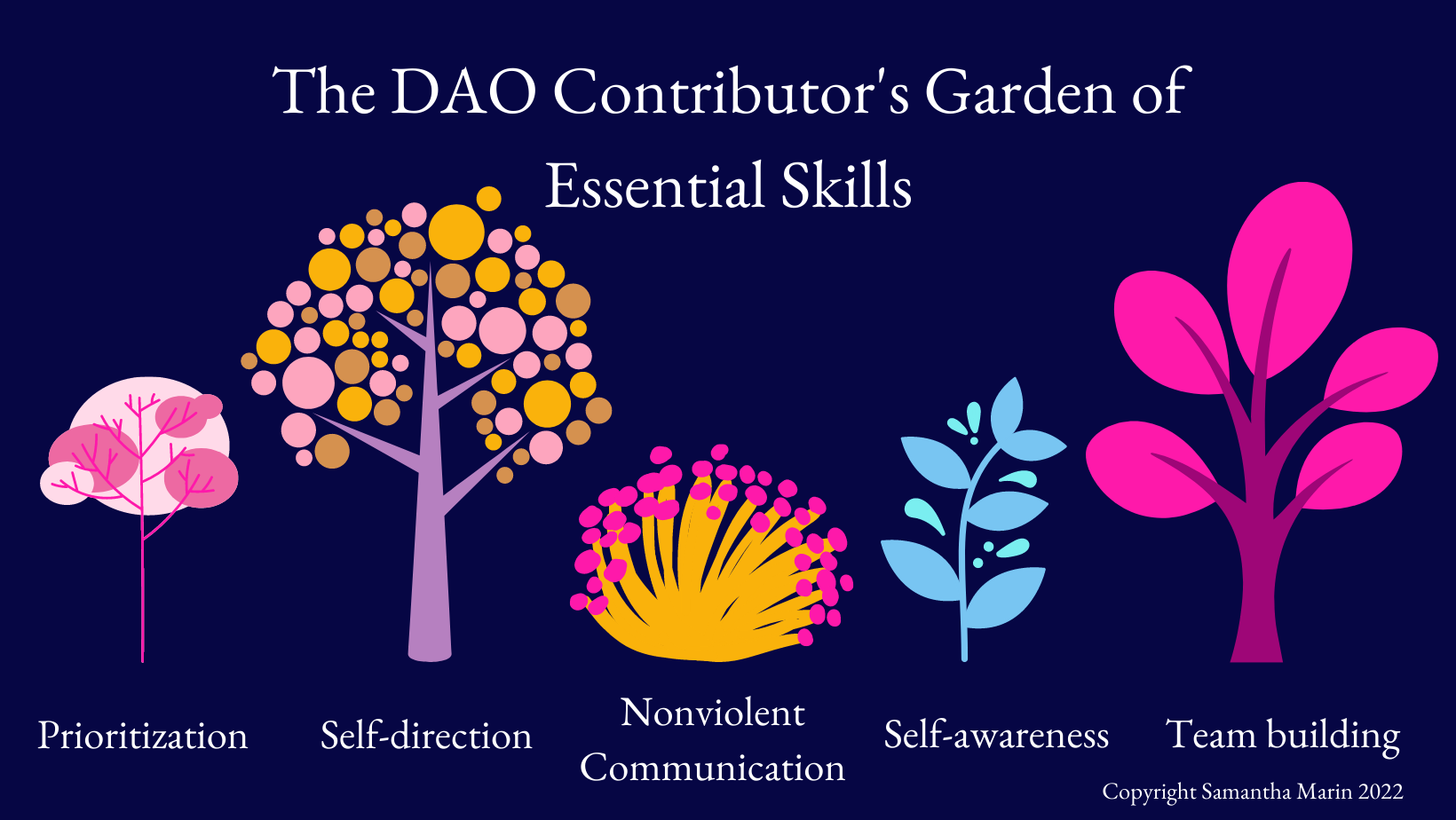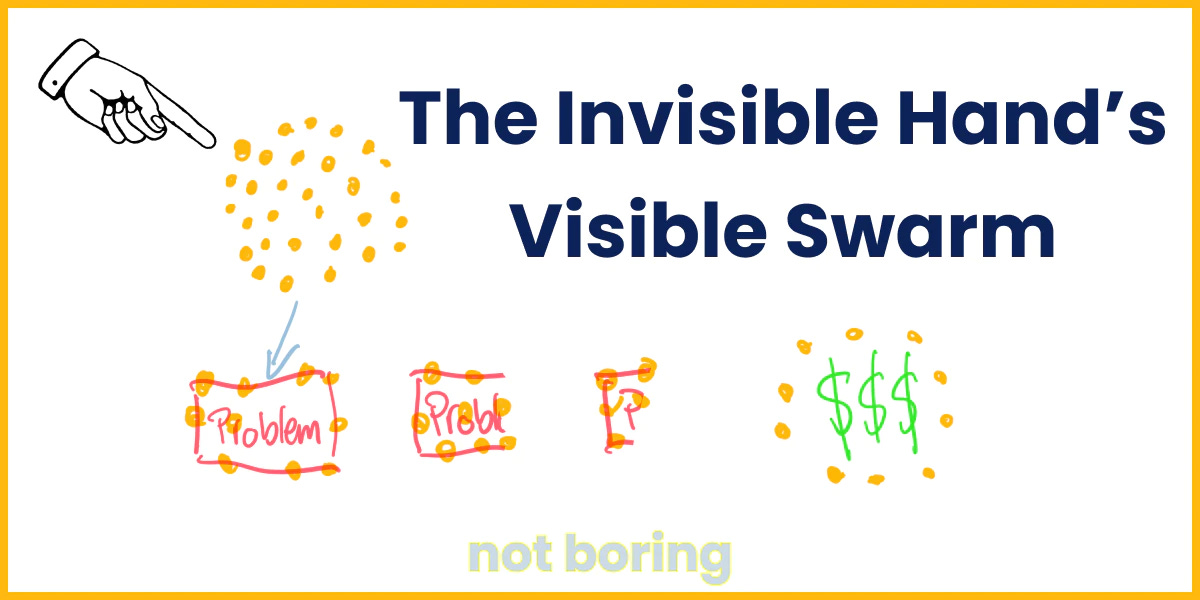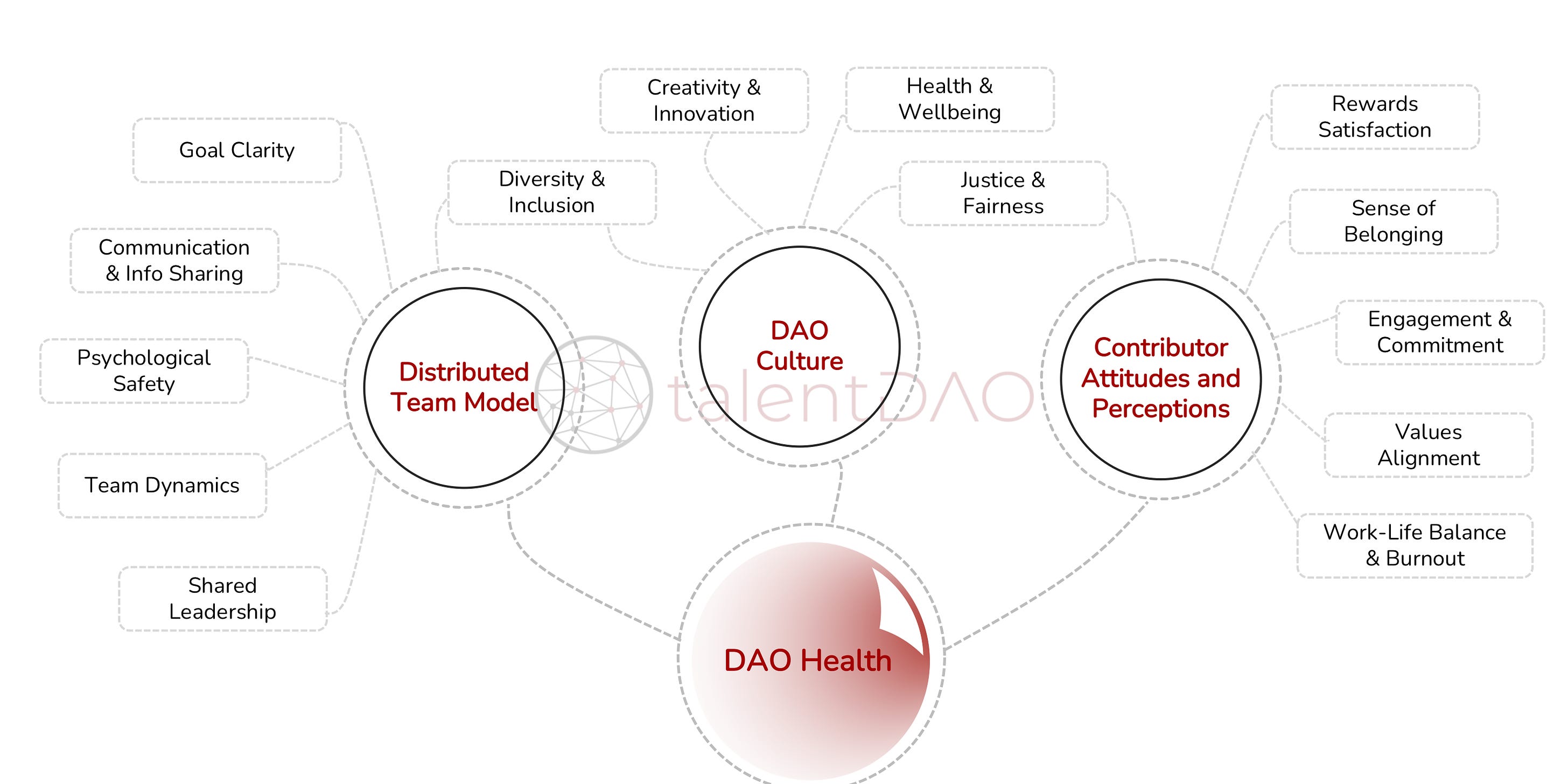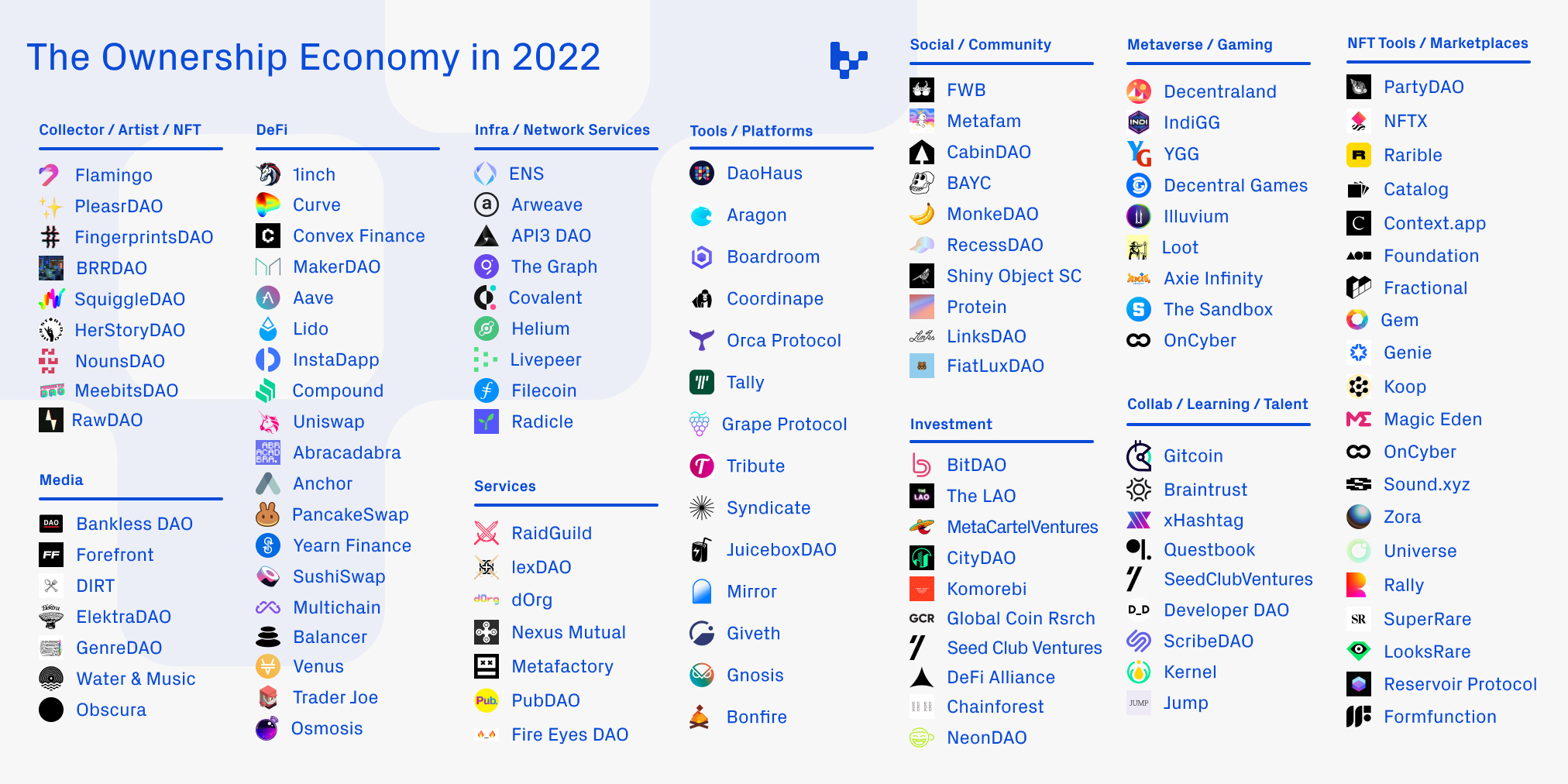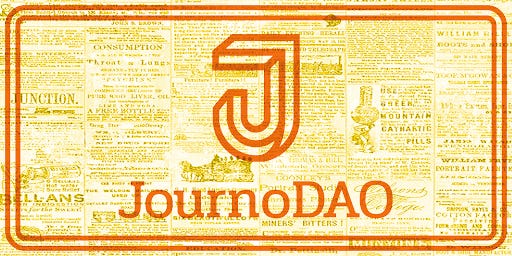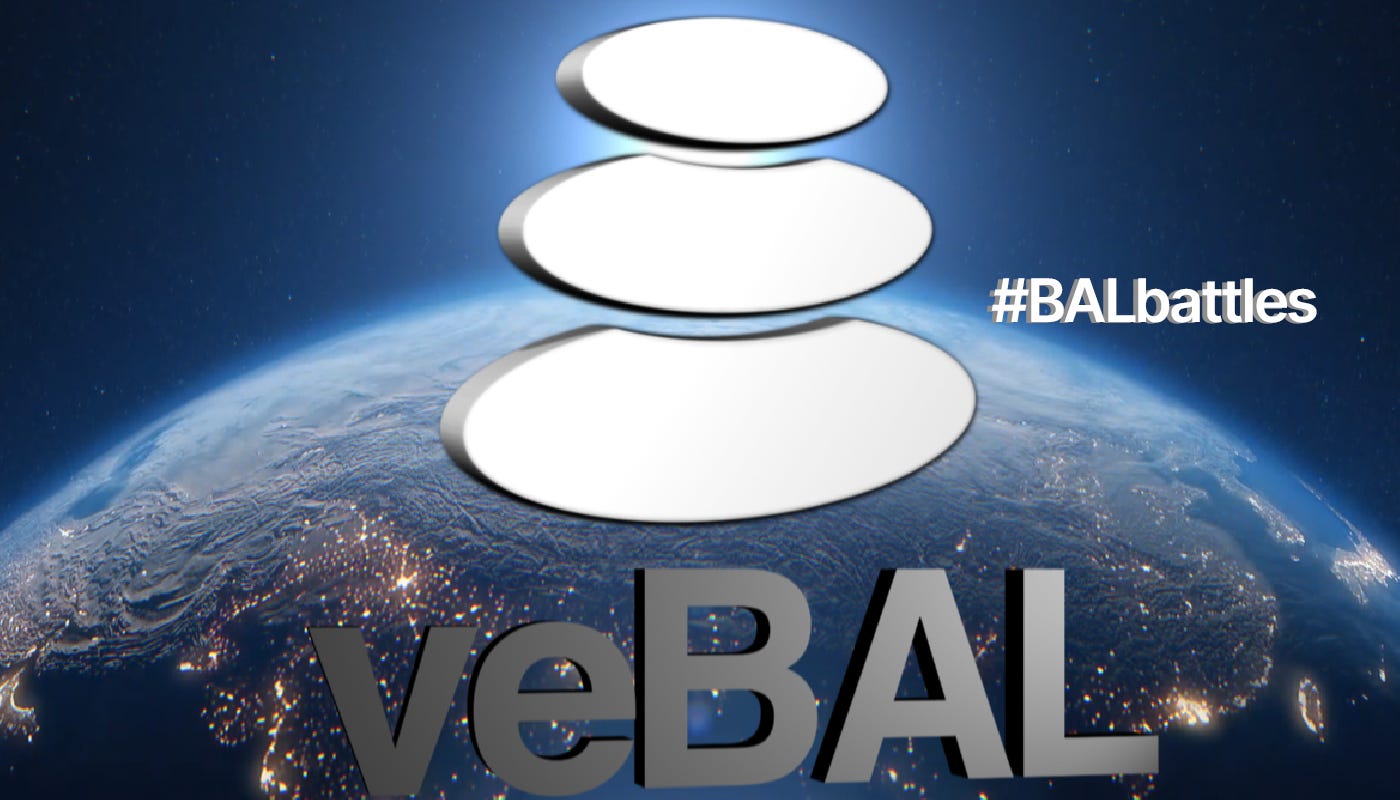Bankless DAO - Updating the DAO Operating System
Updating the DAO Operating SystemYou're reading State of the DAOs, the high-signal low-noise newsletter for understanding DAOs.Gm and welcome to DAOlife! If DAOs are a new hardware for humans to organize and coordinate, the operating system (OS) for these new entities must be updated. In this issue, siddhearta lays out the building blocks for creating an effective DAO OS and how they can unlock a new era of human organization centered around productivity, creativity, and community. Next, we share the TL;DR on the latest DAO ecosystem takes and thought pieces, making it easy for you to cut through the noise and stay up to date on the world of DAOs. This is the current state of the DAOs. Contributors: BanklessDAO Writers Guild (siddhearta, Cisco, Chhavi, d0wnlore, HAshBrown27, hirokennelly.eth, HyperZen, jaux, WinVerse, Zero Mass, circlesandsticks, Jake and Stake) This is the official newsletter of BanklessDAO. To unsubscribe, edit your settings. 🙏 Thanks to our SponsorUpdating the DAO Operating SystemAuthor: siddhearta
Your DAO Already Has an Operating SystemWe are all familiar with a computer operating system (OS), which is the interface between the user and the computer. A buggy or poorly designed operating system makes for a miserable user experience and renders an otherwise very powerful tool useless. Organizations have operating systems too. The organizational OS determines the way people work together within an organization and how that organization will function. Just like in a computer OS, a bug in the organizational OS can create ineffective systems, promote conflict in teams, and bring down the vibes of the community. In DAOs, you might be familiar with the term ”Operations”, but the elements of an effective OS contain much more than just Operations. DAO Operations is a part of your OS, but it is not your OS. The OS is the whole system, the coordination layer that allows members to effectively work in the organization and the DAO to achieve its purpose. What Makes a Good Operating System?Every organization has a way of coordinating its functions, but they may not be conscious of this OS, what it is, or how it was created. Most likely, the OS emerged over time based on a series of decisions and procedures, implemented alongside the organization's mission and values. Often, no one can say quite how the OS was developed, but people know “this is the way we do things around here.” We can use the lessons of computer operating systems to understand organizational operating systems. What makes a good computer operating system:
A functional DAO OS would include similar elements. The member experience should be intuitive and give new members the knowledge and confidence they need to get started. The system should be secure, such as having governance processes that are resistant to coercion or attack. The system should be open, transparent, and permissionless, allowing for shared resources and ease of use. And the system should be flexible and adaptive in order to meet the changing demands of many users and teams over time. What are some signs of a bad computer OS:
Think about the DAO you work in. Do you see signs of a bad OS? Does your governance seem fragmented? Do new members complain about feeling lost? What happens in a DAO that has a lot of organizational debt, or outdated structures or policies that bring down productivity and culture? It’s easy to state the impact of a bad OS:
DAOs present an opportunity to change the way we work, but if they are to become the future of work, we need to upgrade the way we organize. We need a new OS. Evolutionary (Teal) OrganizationsWhile DAOs are an emergent organizational structure, they actually share a lot of the core elements with what are known as Evolutionary or Teal Organizations. Traditional organizations are hierarchical and tend to be profit-driven. Evolutionary organizations are more like living systems or superorganisms and tend to be purpose-driven.  Evolutionary organizations are complex organizations that are based on sense and respond dynamics rather than command and control mechanisms. They are characterized by three main breakthroughs when compared to traditional organizations:
There are already many examples of Evolutionary Organizations that have successful operating systems rooted in decentralized decision-making, flat organizational structures, open-source information systems, and the promotion of human flourishing over profits. Examples include Buurtzorg in the Netherlands, Favi in France, and Patagonia in the United States. All of these companies have proven successful, not only in making money, but, more importantly, by allowing people to do meaningful work. If DAOs are the future of work where people are free to pursue their creative self-expression, we need to design systems that support a sovereign life. A New OS CanvasAaron Dignan is the Founder of The Ready, which is an organizational design firm that reinvents organizations around Evolutionary Teal elements. They have identified twelve domains to rebuild organizational operating systems from the ground up.
One way to understand the twelve domains is that each domain encodes the values and principles related to a particular aspect of the organization. The domains of the OS are composable building blocks upon which DAO tools, governance, teams, projects, products, and culture are all built. By learning the key elements of the OS, members can consciously update and upgrade their current system in a continual process of sensing what is broken and learning to respond with new ways of operating. Unlike computers, DAOs aren’t able to download the latest and best OS available; the reality is in emergent, complex living systems, we always need to apply sense and respond principles. Change doesn’t have to be a top-down dramatic overhaul; rather, it can start with progressive improvement one meeting at a time. By understanding the core domains of the OS Canvas, you will find your bearings and be able to engage in wayfinding techniques. By sensing and responding to problems and tension in the organization along the way, you and the DAO can work towards a healthy community aligned around a shared purpose. Updating the DAO OSPurpose: How we orient and steerEvolutionary organizations are purpose-driven and therefore they need a visible north star to orient contributors. A clearly stated purpose allows organizations to organize around a shared vision and fosters wayfinding. It is unlikely any single person in the organization knows the next best step, but with a clear purpose, DAOs can collaboratively ensure the steps taken are in the right direction. Authority: How we share power and make decisionsGovernance, or how we make decisions, is a key part of the DAO OS. DAOs distribute power and authority to the community based on the values of shared freedom and autonomy. If everyone has the power to create change, then we need systems that promote decision-making and self-managing teams. DAOs use a variety of governance models to facilitate decision-making: advice-based, consent-based, gated voting, quorum requirements, soft and hard consensus. Each of these models has their own advantages and disadvantages, and there is not a one-size-fits-all model for DAOs. DAOs are complex and adaptive systems, which require governance models that use a continuous improvement cycle. They are constantly learning and experimenting, sensing and responding to what is happening in order to find a way forward. Structure: How we organize and teamDAOs can be thought of as multicellular organisms, where many people, projects, and teams create a dynamic lifeform. As decentralized organizations, DAOs tend to be flat rather than hierarchical and the DAOs that will thrive will be built upon open, composable structures. In many DAOs, self-managed teams are responsible for their own governance processes and determine how and why they work. Individuals often hold multiple roles across the DAO, and even in different DAOs. In many ways, the structure of a DAO can be compared to fractals, which are complex patterns that are self-similar across different scales. Self-managed individuals work in self-managed teams, in self-managed projects, in a self-managed community in pursuit of a shared vision. It’s fractal sovereignty all the way down.  pet3rpan @pet3rpan_ Idea: Scale progress horizontally via KPI-driven orientated sub-DAOs. Governance is minimized to focus purely on two areas: What are the KPIs/metrics and OKRs of the DAO? What work proposals should be funded? Would appreciate thoughts/feedback ~ https://t.co/bijQdfsgQtStrategy: How we plan and prioritizeTraditional organizations have been obsessed with profit and winning for so long that we have forgotten what an alternative strategy can even look like. When it comes to understanding the strategy of DAOs as superorganisms, we need to start thinking about infinite games rather than finite games. The goal of infinite games is to keep playing, not to win or maximize profit. Similarly, the goals of a superorganism are to thrive and survive, that is, to keep playing for the long term. Evolutionary organizations often talk about sense and respond, rather than command and control strategies. Persons and teams are encouraged to develop awareness and sense tension and opportunity in the organization, and then find workable solutions and iterate on how best to take advantage of an opportunity.
Resources: How we invest our time and moneyIn Evolutionary organizations, profit is not made for profit’s sake. Profits fuel purpose, and allows the organization to scale its impact and fulfill its purpose. In DAOs, resources like time, money, attention, energy, and skilled labor nourish potential and possibility. Ecological systems are very efficient at utilizing resources, moving energy through the community, and recycling waste. What does nature have to teach us about how DAOs should invest our resources? In nature, healthy soil enables a flourishing ecosystem. In DAOs, healthy humans, a nutrient-rich layer zero, facilitates human flourishing. DAOs need to create regenerative systems and continually reinvest in human potential. Innovation: How we learn and evolveIn BanklessDAO, everyone is encouraged to form a squad around ideas. Before going through the proposal process and seeking funding for a project, start with building something and see what sticks. DAOs should encourage ideas to percolate and for groups to form around ideas. Many of those groups will dissolve, but some will go on to produce loonshots. Often, we think about innovation as the work that happens in the organization, but sometimes the most important innovation is working on the organization.
Workflow: How we divide and do the workProjects are where the magic happens. The value created by projects is what powers mission-driven organizations and this is where people spend most of their time and energy. Self-managing teams in DAOs often struggle with basic project management. Coordination is hard, and in teams where members are free to come and go, getting the work done to spec and on time can be a challenge. High-performing teams often have a core group of contributors that promote a strong cultural dynamic that consistently delivers. Meetings: How we convene and coordinateMeetings provide an opportunity to build connection, amplify the community vibes, foster trust, and provide a space for the wisdom of the collective conscious to find its voice. Meetings should have a clear purpose, even if the agenda is built on the fly. The BanklessDAO Writers Guild has three types of meetings each week:
Information: How we share and use dataDAOs are open-source, transparent organizations, and therefore it is standard practice to make all information available and to work in public. DAOs utilize collaboration tools like Notion and GitHub to distribute and store information, create Community Handbooks to align contributors behind a shared mission, often host AMA (ask-me-anything) information sessions, and operate most efficiently when using pull-based information systems. Membership: How we define and cultivate relationshipsCommunity and culture are the glue that hold DAOs together. DAOs that fail to create a strong vibe also struggle with growing their community and keeping members engaged. Designing intuitive and opt-in onboarding systems can move new members into working teams, where they can quickly shift their focus to contributing and finding or creating roles. Members should be encouraged to hold roles on projects, and even multiple roles across the DAO. Status and affiliation are the core building blocks of our identity in relationship with other humans, and it is easy for decentralized, self-managed teams to fall into centralized, top-down command and control mechanisms based on our deeply ingrained cultural habits. Teams that organize around central actors and status will often have difficulty onboarding new members, because new members can quickly sense how the group structure and authority affect decision-making and the distribution of power. A good onboarding experience will equip the member with the knowledge and confidence to know what they want to commit to. Mastery: How we grow and matureThe future of work is less about filling a role and HODLing than it is about role-playing. Members should be encouraged to stretch beyond their comfort zone, explore the edges of how they can contribute, and learn to work with tension and resistance. Much like children learn when playing, members should learn by doing, taking on roles and growing into them, only to hand them off and keep exploring. This type of role-playing fosters self-sufficiency and competence, but it also creates a flexible community where many members can step in to fill a gap when needed. This agility reduces the risk of founder syndrome, where one person or a core group of people hold the keys to the organization's success. It is common practice in the BanklessDAO Newsletter Team for members to fill a role for a period of time, and then train and transfer knowledge to a new member who takes over the role. As people explore new ways of working in DAOs, they also need new reputation and decentralized identity tools which can serve as your Web3 passport. Onchain reputation through Meritverse, NFTs, and POAPs can serve as a proof-of-work resume in a pseudonymous ecosystem. Compensation: How we pay and provideCompensation is the last and maybe one of the most challenging domains of the DAO OS. Getting paid in crypto offers unique incentives like ownership and equity in the organization, but members often struggle to pay the bills when DAOing full time. There is nothing worse than having to exchange your equity for fiat in order to buy groceries. While actual money is a primary motivator for work, DAOs offer other motivators that are often hard to find in traditional organizations. Many people who work in DAOs emphasize the recognition they receive for their contributions, personally find the work meaningful, enjoy being involved in decision making, and witness and undergo the rapid personal growth and development that happens in DAOs. Most self-managed teams in DAOs develop participatory budgeting practices, where team members work together to develop compensation structures. By making compensation and pay transparent and open for discussion, consensus forms on the various levels of compensation appropriate for the type of work done. DAOs would do well to transparently tabulate compensation across projects and teams in order to standardize compensation and work to shift the organization to internal growth-based incentives rather than external money-based incentives. The Next Big UnlockCrypto natives are familiar with Moloch, the god of coordination failures, which is a failure in the way the community works together. When certain domains of the OS are out of alignment or fragmented, people suffer, the work suffers, and the organization flounders in progress towards its mission. A poorly designed OS creates domain islands or fragments that don’t connect well with the other domains. An organization that has a decentralized structure and claims to distribute authority and power might still limit information and hold meetings where most decisions are made behind closed doors. In this example, structure and authority are held as theoretical ideals, while the organization itself operates by other values and principles. A well operating OS is one in which each of the domains is well integrated and interconnected to make a complex, evolving system. When distributed authority is in alignment with decentralized structure, people have the capacity to act on the resources and information available to them in innovative ways based on sense and respond strategies. Teams naturally form around ideas and coordinate effectively to get work done in a productive and efficient manner. The culture attracts talent and organically onboards new members. People rediscover their dignity, feel recognized for their work, and have a sense of meaning and purpose. As the people grow and develop, the organization becomes more productive and that value brings in revenue and profit. Profit fuels purpose, and the organization flourishes. DAOs can unlock new ways of working in a Web3 world, but only if they move away from traditional corporate operating systems. By creating an OS that fosters an open, composable, and collaborative work space, DAOs can usher in a new era of human flourishing organized around productive, creative, and happy humans. DAOs are what the communities of the future look like. They can be the playgrounds for creating change and solving the biggest challenges we face. The future of work looks bright. Let’s update the way we work together and build the better world we know is possible. Actions steps📖 Read Brave New Work by Aaron Dignan ⛏️ Dig into Reinventing Organizations by Frederic Laloux 🎧 Listen The Divine DAO with Tracheopteryx | Layer Zero 🙏 Sponsor: Balancer DAO- #BALbattles begin! DAOs at a Glance
  4 Key Lessons About Decentralisation in DAOsAuthor: DAO Masters DAOs are not fully autonomous, they require people to create decision-making primitives for governance, incentives, and growth. DAOs should take the advantage of their ability to be “leaderful” by creating functions and space for anyone to be a leader in shaping the culture and future of a DAO. This requires entrusting everyone to become a leader, so decentralized communities can become truly resilient. To help current and future DAOs in their decentralization efforts, here are the top four things we learned from our conversations with key DAO operators.
DAOs aren’t things… they are flowsAuthor: Rowan Yeoman The concept of a company has been abstracted as an entity anchored around a central authority with defined roles for everyone invested, working for the entity and buying/selling from the entity. The entity has always been at the center. DAOs have recreated this entity thinking approach. The assets in the form of treasuries and protocols are expected to be owned, protected, and managed by a centralized setup. By decentralizing decision making via voting, we are decentralizing the governance of a central entity, hence defeating the overarching goal of Web3. DAOs need to be seen as center-less networks that organize themselves; as coordinated flows of resources across a network working towards a collective goal. They can offer high scalability, become more adaptive, and develop a sense to serve the larger needs of the ecosystem. Fractal DAOs should:
There are some promising examples of fractal DAOs like Modular politics, Metagov, Gnosis guild, and Orca protocol. Hence, DAOs shouldn’t be considered an entity but rather a network that autonomously organizes itself in a decentralized way. The Value of DAO Project ManagersAuthor: 0xJustice.eth As the results come in from the early years of DAO experiments, there is a lot to be excited about on this new frontier. Amidst the exuberance, however, there are also signs of a desperate need for greater planning and accountability in this emerging ecosystem. While the social dimension of DAO life is critical, it is equally important to recognize that funded work streams have a fiduciary duty to create results for the communities that sponsor them. To avoid the danger of cascading failures, project managers and the guilds that cultivate their members’ talents, must step forward to play a more prominent role. Two of the challenges where product managers can help are related to the flood of enthusiastic participants into the space. The first is posed by overzealous communities supporting overzealous projects without a concrete plan for delivering. Second, many new projects start with surveying available skills in the room rather than the project’s requirements. Everyone is excited to build stuff, and the team creates bounties to pay for these activities, but before you know it the budget is gone and no cohesive product exists. Closely related to these challenges are ones posed by new Web3 incentive dynamics that make it hard to retain talent as key assumptions of the hourly wage and contract funding models break down. Amidst the many ways project managers are needed, three of the most immediate ways they will create value include:
Ultimately, to make the transition from early-stage exuberance to sustainable coordination systems, DAOs must deliver. As they do, their sustained performance will build trust within guilds, project teams, and throughout the DAO, encouraging top talent to stick around. If WAGMI, project managers will play a key role in getting us there. The 5 Skills Every Successful DAO Contributor Needs to CultivateAuthor: Samantha Marin As DAOs are without central authorities telling you what to do with your time, so there are certain basic skills you need to cultivate to be a long term contributor. To remain relevant after DAOs have gotten mass adoption you need to build these skills at this early stage. The list of skills needed are endless, but here are five you must know and develop to contribute effectively in a DAO.
Bringing More Humanity to Web3Author: Sarah Campbell, Ethan Nelson “Bringing More Humanity to Web3” is the result of a talk by Antoine Sakho, a product leader from the UK with 10 years of experience shipping award-winning apps. Even with this success, he experienced burnout, leading him to examine and reflect on what was happening. He suggests DAOs, and Web3 overall, should be structured to create “novel incentives” based on ethics, connection, and well-being. We are reminded that the burnout, exhaustion, and always-on experiences of Web2 is by design. Not only does it perpetuate itself, it is also significantly negative to individuals’ well-being. This is illustrated by supporting research on the impact of social media use and teenagers in 2011. Instead of continuing on “how bad this is,” he shifts to propose actions and mitigations to these extremely negative consequences. One of these resources is Cal Newport’s book, Digital Minimalism: Choosing a Focused Life in a Noisy World and provides small, but tangible actions to “use tech in a more humane way,” such as removing certain apps from your phone, turning off notifications and even suggesting to use black and white mode. Sakho goes on to point out that there is a lot of focus on the importance of physical health, and suggests exercises for “mental fitness.” He breaks these into two categories; cognitive and social-emotional. The cognitive suggestions, such as meditation, compassion, and enough sleep, are mainly solitary activities. The social-emotional suggestions require some activity or interaction with others, including journaling, peer support and regularly connecting with friends. Sahko does a great job of circling back to his point a few times in this presentation, at the end, he pulls from a few experts in design and philosophy. The heart of the message here is summed up well in Marshall McLuhan’s quote, “ We shape our tools, therefore our tools shape us.” The message that we need to create DAOs that are not like Web2 where the business model is “audience-as-product.” He leaves us with a wonderful list of Principles of Humane DAOs:
Some of these feel antithetical to the Web3 space in general, but that is what he wants to make readers aware of; that we need to be mindful of what we are creating and how we interact with it so we can create cooperative spaces that are healthier and revolutionary in more than just a technological process. Ecosystem Takes
DAOs as novelty search enginesAuthor: olly.eth 🔑 Insights: DAOs are collaborative networks which will likely have a unique role in the future, and will achieve this by being Novelty search engines which is a form of non-objective search. Instead of following stepping stones that appear to lead to a single objective, DAOs simply collect stepping stones that lead in a totally adventurous paths. As such, DAOs are a mechanism for open-ended evolution, or rather, evolved open-endedness: a way to not only generate solutions to directions, but to progressively generate entirely new directions.
The Invisible Hand's Visible SwarmAuthor: Packy McCormick 🔑 Insights: Capitalism has done an incredible job coordinating people to act in the interests of the community through individual competition, this speed of progress and efficiency is increasing due to the internet. This chaos, called “The Swarm”, is what how people, money, and energy get attracted to the right problems and why we should be optimistic on the future of humanity.
NoDW #3: Developing the DAO Health SurveyAuthor: TalentDAO 🔑 Insights: A DAO is a network of contributors coordinating in dynamic visual teams toward a shared purpose by decentralizing authority and ownership. Effective operations using decentralized structures and procedures, is one of the key challenges facing DAOs, and when these operations fail, DAOs become sick. DAO health can be sufficiently measured using some psychometrics such as positive organizational attitudes, engaged workers, supportive cultures, aligned values, and clear communication among others.
Station Newstand: Business-Governance FitAuthor: Chris Ahn 🔑 Insights: Web3 has brought renewed attention to the formerly overlooked concept that certain governance models are better suited for specific projects (crypto-native vs non-crypto-native). Historically, governance decisions were based on two considerations: for-profit vs. non-profit and public vs. private.
The Ownership Economy 2022 – VariantAuthor: Variant Team 🔑 Insights: The ownership economy drives the initiative of users becoming owners of their contributions on internet platforms. With the basis of the ownership economy being crypto tokens in this discussion, we characterize hodlers and active participants as owners. Although the state of the ownership economy is quite robust at this time, and growing quickly with the emergence of DAOs following Bitcoin and Ethereum, some understanding on where we are is required if we are to grow even further.
DAO Spotlight: JournoDAOHave you noticed how much the world sucks lately? Well, so has JournoDAO, and they think they know part of the reason why. And how to fix it. Media consolidation and the cannibalizing forces of Web1 and Web2 business models have left many communities with fewer or even zero outlets providing any local coverage. No local news means open season for corruption and the erosion of institutions. There are many places to point fingers: social media, predatory algorithms, political polarization, market forces… but JournoDAO’s community of journalists, media folks, builders and Web3 explorers believe that supercharging local news with blockchain, DAOs and other Web3 tools can repair some of the damage done. JournoDAO will partner with one lucky community to buy its local newspaper (or other media outlet) and transform it into a model of what 21st century journalism could be, by giving it Web3 superpowers. In the first phase of this adventure, JournoDAO hopes to follow in the footsteps of ConstitutionDAO and crowdfund the purchase of an important institution. A local newspaper symbolizes the community and healthy civic life that media conglomerates and Web 2 giants have taken from us. For journalists who are skeptical of Web3, JournoDAO also offers a professional and social network for journalists. The community’s first incubator product is now in development. It provides a new way for journalists to take control of the different types of content they create, including new means of distribution, collaboration and monetization. JournoDAO is collaborating with UkraineDAO to test an alpha version with journalists covering the war in Ukraine. Other collaborations are also underway as JournoDAO works to guide more traditional journalists down the rabbit hole of Web3. To apply to join JournoDAO and learn a little more, visit JournoDAO.xyz and also check out the JournoDAO MIrror and follow the JD Twitter. Get Plugged InEvent HighlightsBanklessDAO - Permissionless Conference— Tickets are on sale for one of the biggest DeFi conferences of the year! Over 5,000 people will be attending in total and every two weeks 250 more tickets unlock. Once the 250 tickets are purchased, registration closes and you’ll have to wait until the next release. Speakers include our very own Ryan Sean Adams and David Hoffman, as well as many others. Join us on Tuesday - Thursday, May 17 - 19, 2022 in sunny Palm Beach, Florida for the event. 🧳 Job OpportunitiesGet a job in crypto! Do you like solving hard problems, care about building more efficient markets for everybody, and want to work at the frontier of decentralized finance? KeeperDAO is looking for full time contributors, with salaries ranging from $169,000-$722,000. There are positions ranging from engineering, recruiting, product marketing, copywriting, and design. Sound interesting? Sign up for our referral program and go full-time DAO.
🙏Thanks to our SponsorBalancerBalancer is a flexible and versatile Automated Market Maker that enables efficient trading and the exchange of any combination of ERC-20 tokens permissionlessly. Balancer also turns the concept of an Index Fund on its head: instead of paying fees to Portfolio Managers, you can now collect fees from traders who rebalance your portfolio by following arbitrage opportunities. The Balancer Protocol is a core building block of DeFi infrastructure — a unique financial primitive and development platform. If you liked this post from BanklessDAO, why not share it? |
Older messages
Where to Buy, Mint, Swap, or Sell Your Next NFT | Decentralized Arts
Monday, May 2, 2022
BanklessDAO Weekly NFT and Cryptoart Newsletter
Unlocking the Professional Cheat Code | BanklessDAO Weekly Rollup
Saturday, April 30, 2022
Catch Up With What Happened This Week in BanklessDAO
Regulatory Certainty and the Rule of Law | Decentralized Law
Thursday, April 28, 2022
BanklessDAO Legal Newsletter
The Art of Photogrammetry & Financial Data as Music NFTs | Decentralized Arts
Monday, April 25, 2022
BanklessDAO Weekly NFT and Cryptoart Newsletter
Our Decentralized Selves | BanklessDAO Weekly Rollup
Saturday, April 23, 2022
Catch Up With What Happened This Week in BanklessDAO
You Might Also Like
Donald Trump to reportedly unveil Bitcoin reserve strategy at White House crypto summit
Wednesday, March 5, 2025
Key industry figures, including Michael Saylor and Brian Armstrong, to join Trump at White House crypto summit. ͏ ͏ ͏ ͏ ͏ ͏ ͏ ͏ ͏ ͏ ͏ ͏ ͏ ͏ ͏ ͏ ͏ ͏ ͏ ͏ ͏ ͏ ͏ ͏ ͏ ͏ ͏ ͏ ͏ ͏ ͏ ͏ ͏ ͏ ͏ ͏ ͏ ͏ ͏ ͏ ͏ ͏ ͏ ͏ ͏
DeFi & L1L2 Weekly — 🚀 Cronos pioneers seamless crypto-to-debit transfers; Virtuals Protocol saw a 95% drop in tr…
Wednesday, March 5, 2025
Cronos pioneers seamless crypto-to-debit transfers. Virtuals Protocol saw a 95% drop in trading volume. Ondo Finance joined the Mastercard network to improve cross-border payments. ͏ ͏ ͏ ͏ ͏ ͏ ͏ ͏ ͏ ͏
DeFi & L1L2 Weekly — 🚀 Cronos pioneers seamless crypto-to-debit transfers; Virtuals Protocol saw a 95% drop in tr…
Wednesday, March 5, 2025
Cronos pioneers seamless crypto-to-debit transfers. Virtuals Protocol saw a 95% drop in trading volume. Ondo Finance joined the Mastercard network to improve cross-border payments. ͏ ͏ ͏ ͏ ͏ ͏ ͏ ͏ ͏ ͏
Global Crypto Mining News in February:U.S. Customs Increases Scrutiny of Chinese Bitcoin Mining Machines, Bitdeer …
Wednesday, March 5, 2025
1. Bitfarms said it is exploring ways to enter the artificial intelligence and high-performance computing space, as bitcoin miners continue to explore alternatives following last April's bitcoin
Crypto traders lose nearly $1 billion as US-China trade war overshadows Trump’s crypto reserve initiative
Tuesday, March 4, 2025
US trade tensions with China and allies spark $500 billion crypto market plunge despite Trump's crypto reserve plan. ͏ ͏ ͏ ͏ ͏ ͏ ͏ ͏ ͏ ͏ ͏ ͏ ͏ ͏ ͏ ͏ ͏ ͏ ͏ ͏ ͏ ͏ ͏ ͏ ͏ ͏ ͏ ͏ ͏ ͏ ͏ ͏ ͏ ͏ ͏ ͏ ͏ ͏ ͏ ͏
Analyst Spotlight Solana Overview
Tuesday, March 4, 2025
An in-depth look at Solana (SOL) and this week's market developments ͏ ͏ ͏ ͏ ͏ ͏ ͏ ͏ ͏ ͏ ͏ ͏ ͏ ͏ ͏ ͏ ͏ ͏ ͏ ͏ ͏ ͏ ͏ ͏ ͏ ͏ ͏ ͏ ͏ ͏ ͏ ͏ ͏ ͏ ͏ ͏ ͏ ͏ ͏ ͏ ͏ ͏ ͏ ͏ ͏ ͏ ͏ ͏ ͏ ͏ ͏ ͏ ͏ ͏ ͏ ͏ ͏ ͏ ͏ ͏ ͏ ͏ ͏ ͏
ETH Denver Conference Impressions: VC Indifference, Lackluster Narratives, and the Disillusionment of Idealism
Tuesday, March 4, 2025
Compared to last year — and even more so than the recently concluded Consensus — the overall atmosphere was much more subdued, with panel speakers noticeably outnumbering the audience. ͏ ͏ ͏ ͏ ͏ ͏ ͏ ͏
Trump’s crypto reserve faces backlash over ADA and XRP inclusion
Monday, March 3, 2025
Ripple and Cardano leaders embrace Trump's multichain approach despite criticism for altcoin inclusion. ͏ ͏ ͏ ͏ ͏ ͏ ͏ ͏ ͏ ͏ ͏ ͏ ͏ ͏ ͏ ͏ ͏ ͏ ͏ ͏ ͏ ͏ ͏ ͏ ͏ ͏ ͏ ͏ ͏ ͏ ͏ ͏ ͏ ͏ ͏ ͏ ͏ ͏ ͏ ͏ ͏ ͏ ͏ ͏ ͏ ͏ ͏
📈 Bitcoin dominance reached a 4-year high of 62%; Trump announced a strategic crypto reserve with BTC, ETH, XRP, …
Monday, March 3, 2025
Bitcoin dominance reached a 4-year high of 62%; Cronos becomes the first blockchain to power crypto-to-debit transfers; Trump announced a strategic crypto reserve with BTC, ETH, XRP, SOL, and ADA ͏ ͏ ͏
White House Schedules First Ever Crypto Summit
Monday, March 3, 2025
March 3rd, 2025 Sign Up Your Weekly Update On All Things Crypto TL;DR White House Schedules First Ever Crypto Summit SEC Declares Meme Coins Are Not Securities Consensys Secures Victory In MetaMask
